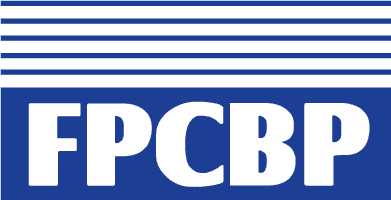Property Offences Lawyer Toronto
Property Offences Lawyer Toronto
Subheading Take the first step to defend your rights to a property charge. Contact us today for a free, confidential consultation with one of our top property crime defence lawyers.
Property Offences Lawyer in Toronto, Committed To Defending Your Rights
LD Law offers full defence services to those charged with a property crime in Toronto and the GTA. We know that a property charge (i.e., theft, fraud, mischief, break and enter) is a very serious and challenging experience. You likely have questions about your situation, and need a fierce advocate fighting for you every step of the way. Our practice is focused on delivering results and obtaining the best possible outcome for you in your property case. LD Law brings criminal defence law specialization and a particular focus on property offences to the table.
We have been in practice for years, have a successful track record defending property crime charges and continue to protect the rights and liberties of accused persons. At LD Law, you will be given personal attention at every step of the process. We know all the courts, Crown Attorneys and judges that preside Toronto region property cases so you have property law expertise on your side.
Why You Need A Specialized Property Offences Lawyer In Toronto
A property charge can have a major impact on your life, liberty, future employment, and travel, so it is equally important to consult a lawyer with experience in the field.
Our criminal defence practice (including many property crime cases) enjoys a strong reputation for professionalism and results, with many clients brought before the courts on property charges seeing their charges:
- Withdrawn,
- Acquitted,
- Reduced, or
- Resolved with no criminal record.
Our narrowed scope affords us specialized tactics and techniques for use in your property case, including:
- Investigation of the facts of your case (surveillance video, documentary evidence of true property ownership/title, transaction records),
- Challenge to the Crown’s evidence on intent or property value,
- Plea negotiations (often dealing with restitution issues),
- Expert consultations (i.e., forensic accountants in cases of fraud),
- Courtroom advocacy that may have a significant effect on the eventual result.
Our criminal law property practice is maintained through dedication and focus.
Our knowledge and experience dealing with property law in the Toronto court system are put to use for you so you can be sure your defence is being carried out to the highest standards.
We know the courts and prosecutors that hear property crime cases and can ensure your full advocacy.
The single greatest benefit to having a specialized property offences lawyer is that you have expertise, resources, and support on your side at this critical time while:
- Your rights are being protected, and
- The potential consequences of your property charge are being tempered.
The defence you receive is tailored to the facts of your case so that any details related to the property offence alleged are not missed.
Let us be by your side and assist on your pathway to a better future.
Our Lawyers at LD Law



Practice Areas Focused on Property Offences
You Deserve Us On Your Side
BAIL HEARING LAWYER
An arrest and charge made against you, property or otherwise, is an intimidating experience and you need a lawyer who has what it takes to make the argument for reasonable bail and your release prior to trial. We have you covered at bail hearing and bail review and make every effort to secure your release pending your trial.
THEFT DEFENCE LAWYER
Theft, shoplifting, theft over/under $5000 are all property charges that may have you frightened for your outcome. A finding of guilt on theft could result in a jail sentence, fines, restitution and permanent criminal record that will follow you for the rest of your life, threatening your reputation and future prospects. We offer experience in all theft charges to ensure your case is dealt with and any impact to your record is minimized.
FRAUD LAWYER
Fraud charges (from credit card to corporate fraud) can entail complicated evidence and stiff penalties. We provide expert legal defense and protection for your interests through careful review of the documentary records, evidence and law relating to your case.
MISCHIEF DEFENCE LAWYER
A mischief charge deals with the wilful destruction or interference with property alleged. Whether charged with vandalism or interfering with data, we know how the offence of mischief is defined and how to raise the challenge to your case.
BREAK AND ENTER LAWYER
A break and enter conviction carries significant potential penalties. Whether the Crown can prove any intention in the case is often crucial. We offer experienced representation in break and enter cases and are prepared to do what it takes to defend or resolve your case.
POSSESSION OF STOLEN PROPERTY LAWYER
Possession of property obtained by crime requires evidence on the part of the Crown that you had some knowledge or 'ought to have known' that the property was stolen. We contest this and other elements of the Crown's case and protect your rights if you are charged with possession criminally.
PROBATION VIOLATION LAWYER
Breach of probation (possibly relating to a prior property offence conviction) is a further offence against you carrying a penalty that could include jail time. We support you as our client in breach of probation proceedings and deal with allegations as such are brought against you.
Facing Property Crime Charges? We Can Help
The LD Law Advantage In Property Crime Defence
Full Legal Assessment
We start each property crime file with a thorough consultation, getting to know the specific circumstances in your case (i.e., value alleged, intention, legitimate title/claim of the property at issue, etc.). From this initial assessment, we can identify legal issues in your file, possible defences (colour of right on a theft allegation) and chances for resolution. Surveillance evidence, witness statements, financial records, etc. are reviewed in detail as the basis for your defence.
Defence Strategy Customization
We know that not every property crime is the same and so not every defence should be. The defences used by this office are varied and advanced including conduct of identification argument on surveillance video, challenge to valuation of any property taken/destroyed (i.e., challenged insurance claim on a stolen vehicle), lack of intent to commit the alleged criminal act, negotiations to avoid a finding of guilt and enter a diversion or negotiated restitution agreement in its place are all available before your case goes to trial alongside our courtroom advocacy.
Expertise Navigating the Legal System
Our working knowledge of the property case law in the Toronto court system saves you time and energy. We know which courts, judges and Crown Attorneys prosecute property crime charges so we can prepare for and deal with these issues efficiently and effectively. Disclosure requests, pre-trial motions, court appearances are all taken care of with minimal hassle.
Why Choose LD Law for Property Offence Defence
Fearless Representation
We never stop fighting for your rights in the face of a property crime allegation. The Crown will do everything possible to prove your guilt; we do everything possible to win an acquittal or reduced penalty/substitute outcome for you. Early intervention, investigation and planning are all necessary to building a strong case for your defence from the outset.
Proven Results
Our winning track record on property charges runs wide and deep, from theft/assault to all kinds of property offences, with a great number of cases resulting in withdrawals, acquittals and satisfactorily negotiated resolutions and settlements that keep you free of a property related criminal record. Our office holds your case to the highest standards and guarantees maximum effort and creative application of all defences possible to your case.
Passionate Advocacy
We are fighters for your rights and justice and are never afraid to take a case the distance. All advanced practices available to us are deployed in arguing your file from careful review of the evidence (police notes, witness accounts, documentation, video/audio, etc.) to challenge to intent or knowledge to courtroom advocacy.
Trusted and Experienced
LD Law's years of property crime law experience (dedicated property law practice within a larger criminal law practice) makes them a trusted name in defending clients and in the legal community. Their practical experience with all matters relating to property law means your defence is being run to full capacity.
Personal Attention
You are not simply a property file to us. The facts of your case are heard and every effort is made to account for your worries and concerns (i.e., impact of a conviction on employment, immigration status, etc.) and to keep you involved with important decision-making as your case moves along. You have direct access to your lawyer as your file progresses and are guaranteed a personal touch in every aspect of your defence.
Timely Communication
You are kept up-to-date and informed on every step of the process running your property crime file. You will have direct line access to your lawyer, who will frequently return your calls, emails or text messages to answer any further questions you may have.
Choosing LD Law For Your Property Crime Defence
Who you choose for representation on a property crime charge (theft, fraud, mischief, break and enter) is the most important call you will make for your case.
LD Law brings years of criminal defence law experience (countless property crime law client files in Toronto and GTA), with proven property law results:
- Withdrawals,
- Acquittals,
- Non-conviction resolutions.
When it comes to expertise, it comes from property law experience.
At LD Law, the criminal law practice is solely focused on criminal defence, allowing the firm to bring advanced and property-specific strategies to the management of your case, including:
- Detailed Evidence Analysis:
Careful review of surveillance video, documentary records, witness statements, document or digital evidence. - Challenging Intent and Knowledge:
Challenge to the mental element required for a conviction (i.e., no intent to defraud, belief the property was your own). - Valuation Disputes:
Challenge to the value assigned to the property (where there may be a sentencing consequence or differentiation in the charge – theft under or theft over $5000). - Strategic Negotiations:
Negotiation with the Crown about:- Dropping a/the charge(s),
- Entering a diversion program,
- Reaching a resolution involving restitution rather than a criminal finding of guilt.
- Assertive Courtroom Advocacy:
Courtroom advocacy, including:- Cross-examination of witnesses,
- Presentation of defences.
Client care is another distinguishing feature.
At LD Law:
- Time is taken to get to know your circumstances and goals.
- Your representation is carried out accordingly.
- You have direct line access to your lawyer, who will update you and explain the course being taken with your defence.
The stakes are high if you are charged with a property crime.
At LD Law, your rights and future are our priority.
We know all the ins and outs of the Toronto court system that apply to property crime files – including:
- What courts,
- What judges,
- What Crown Attorneys
will be prosecuting your case – to your advantage.
Frequently Asked Questions About Property Offences
1. What are the most common types of property offences in Toronto?
In my years of practice as a criminal lawyer in Toronto, there are property charges that come up time and time again and these are:
theft under $5000: This is the most common of the property charges and usually takes the form of a shoplifting allegation (although it may be any property alleged to have been taken to a value of $5000 or less).
fraud under/over $5000: This category covers a wide variety of property crimes - including credit card/cheque fraud and more sophisticated schemes to deprive a person or organization of goods or service by fraudulent means. Again, the $5000 threshold figures prominently for penalty purposes.
mischief under/over $5000: This is most often a case of property alleged to have been wilfully damaged or tampered with. Common charges include vandalism, graffiti or damaging a motor vehicle. The $5000 threshold sets out the value distinction for penalty.
possession of property obtained by crime: This is a charge laid if and when there is evidence that property found in the possession of a person was stole or obtained under false pretences, and that the person ought to have known that.
break and enter: This is a more serious charge and involves allegations of entering a premise (home, business, etc.) without authority for the purpose of committing an indictable offence therein (theft is a typical property offence here). Break and enter into a dwelling house (residence) is considered to be the most serious form of this charge.
autotheft: Given current crime realities in Toronto, theft of a motor vehicle is unfortunately another often-defended charge.
2. What should I do immediately if I'm accused of shoplifting or theft?
You are extremely vulnerable at this point, and your future hangs in the balance of what you do next. Here is my advice:
Right to silence: Do not say anything - admission, apology, justification or explanation - to store security or the police. Anything you say may be used as evidence against you at trial. Instead say clearly that you wish to claim your right to silence.
Right to counsel: Make it known to police when first asked if you wish to consult counsel. Hold firm and do not answer any questions or make any statements until you have spoken to a lawyer. The police must allow you access to counsel as soon as is feasible.
Do not agree to sign anything: You may be asked by store security to sign a document admitting to the theft or promising not to return (ban), or by police to provide a written statement. Do NOT sign anything or provide any written statement until you have passed it by your lawyer.
Be polite and respectful: Don't make a bad situation worse for yourself by causing trouble or behaving badly. If you are required by police by law to provide identification, do so, but be polite and stick to what you have said about your rights to silence and counsel.
Call a criminal defence lawyer at the earliest possible opportunity: Time is of the essence, so make every effort to ensure you or someone on your behalf contacts a lawyer with experience in theft defence as soon as you can. The sooner your lawyer is involved in the process, the sooner your rights can be protected, the facts and circumstances can be determined and a defence strategy can be set.
3. How can a property crime conviction affect my employment or ability to travel?
A finding of guilt on a property crime (even shoplifting) may result in very serious collateral consequences that will follow your case regardless of your sentence or penalty:
Employment: A large number of employers now require criminal record checks to be arranged by a job candidate, especially when the job entails putting trust in the employee (i.e., finances, vulnerable persons - or what is called a "vulnerable sector check", government positions with security clearance, etc.). A finding of guilt on a property charge may be a deal breaker for a career/job or a bar to licensing required in a profession/occupation such as realtor or insurance agent or accountant. Loss o'trust and insurance/bonding issues may similarly present employment obstacles.
Travel: Having a conviction appear on your criminal record will make you inadmissible to other countries. In particular, the U.S.A. will not allow entry to individuals with criminal records for crimes it considers to be offences of "moral turpitude" (this is often interpreted to include property crimes such as theft and fraud). In some circumstances, even if you are discharged following a finding of guilt (conditional discharge), the border authorities are within their power to bar you. This may have a negative effect on your ability to work, as well as your travel and lifestyle.
On all property crime charges, it is crucial to fight for a result/record that does not carry a criminal record with it - the long-term impacts are life-changing.
4. What are some potential defences against charges like fraud or mischief?
The best defence in your case will depend on the facts, but the following are some of the main defence options:
For Fraud:
- No Intent (Mens Rea):
The charge of fraud requires that the Crown prove you intentionally committed the deceit and deprivation necessary in law.
If your actions were the result of mistake, error, or misrepresentation, and you had no intent to defraud, this will present a complete defence to the charge.
- No Deprivation or Risk of Deprivation:
The Crown must prove that the alleged victim was actually deprived of property or money, or put at risk of deprivation by your actions.
- Authorization/Consent:
If you acted with implicit or explicit authority or consent of the involved party, this may present a defence to the charge.
- Identity:
The Crown must prove that the person accused committed the fraudulent act alleged to have occurred.
For Mischief:
- No Intent:
Like fraud, the charge of mischief requires an element of intent.
Where the damage to or interference with property was caused by accident, the act was not intentional.
- Colour of Right:
Where the act was committed under a genuine belief as to a legal right to act with the property (i.e., it is your own, etc.), this may present a full defence to the charge.
- Consent:
Where the act was committed with the consent of the owner of the property in question.
- Identity:
Where the Crown must prove the person committing the alleged act has been proven to be you.
General Defences (May Apply to Both):
- Insufficient Evidence:
Where there is a failure on the Crown's part to prove each and all of the elements of the offence, or where intent cannot be proven.
- Charter Violations:
Where the defence can establish a breach of your "Charter rights" (Charter of Rights and Freedoms) during or following the investigation or arrest (i.e., unlawful search and seizure, denial of counsel, etc.), the court may order the evidence that flowed from the violation to be excluded from the case, fatally weakening or defeating the Crown's case.
An experienced defence lawyer will know how to review the evidence and facts to spot potential and best defences in your case.
5. Can LD Law help negotiate alternative outcomes like restitution or diversion programs for property offences?
Achieving other outcomes to a criminal record is an integral part of defending a property crime and applies most often in first offence and low-level allegations.
Diversion / Direct Accountability:
- In the majority of first-time and lesser property offences (i.e., first-offence shoplifting or mischief), your defence lawyer will be able to negotiate with the Crown Attorney a withdrawal of the charges following successful completion of one or more conditions agreed to by the client (diversion or direct accountability).
- These conditions may include:
- A charitable donation,
- Written apology letter,
- Community service work,
- Requirement to attend counselling.
- Upon completion, the charge(s) are withdrawn and there is no record entered.
Restitution:
- Where there is an actual loss suffered by the victim (theft, fraud, damage), the resolution of the case will often involve a requirement to pay back restitution (make up for losses, damages, or expenses incurred by the victim as a result of the property crime).
- While restitution does not provide a defence, the Crown will often include a restitution term in a plea negotiation resulting in:
- A lighter sentence (e.g., jail time avoided), or
- In rare but appropriate cases, the negotiation of a discharge or another result not amounting to a conviction being entered.
It is our job to determine your eligibility for one of these avenues, to gather the required evidence accordingly, and to make every effort to convince the Crown to run your case in this manner if/where possible.
6. What does the Crown need to prove if I'm charged with Possession of Stolen Property?
- Possession: That you exercised some measure of control over the property and knew that you had it. Possession doesn't just mean having it on your person; it can be constructive (e.g., stored in your locker or car) or joint (shared control with others).
- Property Obtained by Crime: That the property in question was, in fact, obtained through the commission of an indictable offence in Canada (most commonly theft or fraud).
- Knowledge or Wilful Blindness/Recklessness: This is often the key element. The Crown must prove that you knew the property was obtained by crime. Alternatively, they can prove guilt if they show you were "wilfully blind" (deliberately shutting your eyes to the obvious fact that it was stolen) or "reckless" (aware of the risk that it was stolen but proceeded anyway). Simply buying something cheap isn't automatically proof, but circumstances suggesting you should have known (like buying a new high-end item for a fraction of its price from someone unofficial) can be used to infer knowledge or wilful blindness.
7. What are the potential penalties for different property crimes like theft, fraud, or break and enter?
- These are hybrid offences:
- Maximum summary conviction penalty: $5000 fine and/or 2 years less a day in jail.
- Maximum indictable penalty: 2 years in prison.
- Most of the time, for a first offence/low value property charge, outcomes may include:
- A discharge (finding of guilt but no criminal record is entered),
- A fine,
- Probation.
- Often these results may be arranged through plea negotiation or use of a diversion program.
- Indictable offence only.
- Maximum penalty: 10 years in prison.
- Indictable offence only.
- Maximum penalty: 14 years in prison.
- Mandatory minimum:
- If the amount exceeds $1 million, there is a minimum 2-year jail sentence that must be imposed.
- A finding of breach of trust (e.g., internal theft, offence committed by employee) will typically result in longer sentences.
- Indictable offence only.
- Maximum penalty: 10 years in prison.
- Indictable offence only.
- Maximum penalty: Life imprisonment.
- Sentences are often lengthy in serious cases, cases involving violence, or where the dwelling house is occupied by its occupants at the time.
- Penalty depends on offence classification:
- Mischief Over $5000: Maximum penalty of 10 years imprisonment.
- Mischief Under $5000: Subject to the same penalties as theft/fraud under $5000.
- Probation:
- Reporting requirements,
- Counselling,
- Conditions for non-attendance/communication.
- Restitution:
- Payback of monies to victim.
- Forfeiture:
- Loss of property relating to proceeds of the offence.
Get in touch











